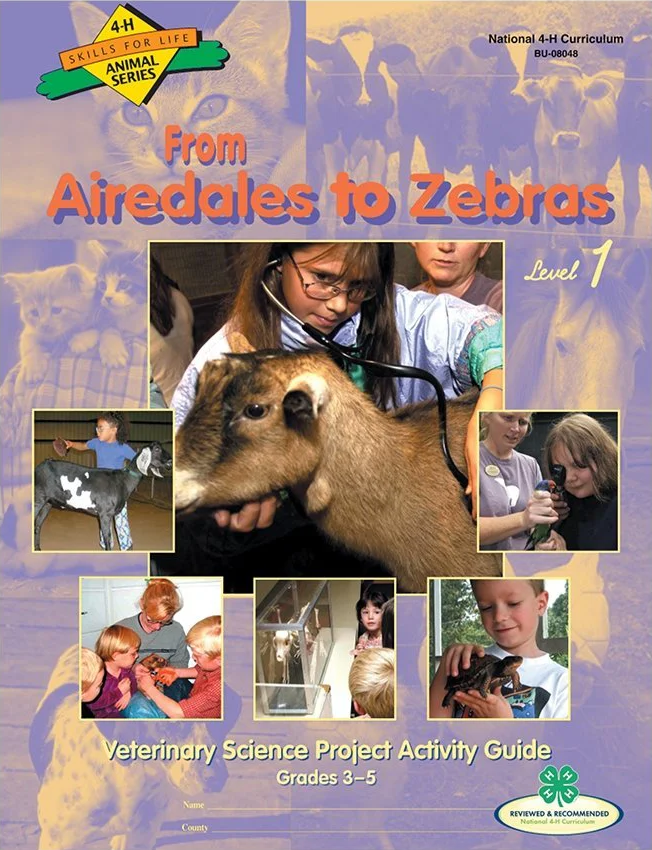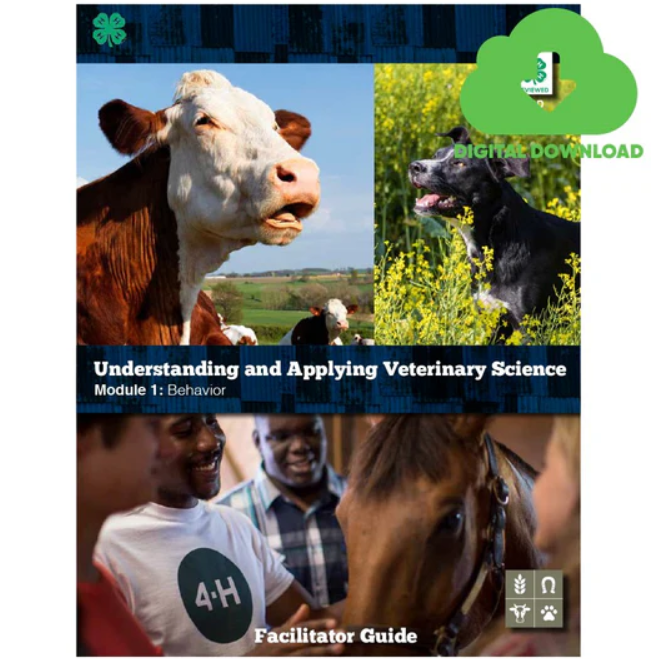Home » 4-H Opportunities » Projects » Agriculture and Animal Science » Veterinary Science
Veterinary Science

What is it all about?
A natural compassion for animals and an interest in science is what leads most veterinarians into their field. Learn the role a veterinarian plays in practicing animal and public health while participating in many hands-on activities. These activities will help you learn about the different equipment used by veterinarians, diseases and health problems, and career opportunities as a veterinarian or volunteer. You do not have to own an animal to be in this project!
Grow in Your Project
Beginner
- Recognize major breeds of different species of animals
- Identify basic needs of animals
- Investigate the different roles of animals
- Describe different stages of an animals’ life
- Discover body systems and organs
Intermediate
- Complete health records on an animal
- Learn how to recognize and reduce animal stress
- Investigate how the immune system works
- Recognize how disease can spread among animals
- Learn how parasites affect animal health
Advanced
- Discover the bond between humans and animals
- Investigate the mammalian reproductive system
- Learn about breeding and genetics
- Recognize the importance of zoonotic diseases
Member Resources
Project Leader Resources

Veterinary Science Helper’s Guide
3 levels (grades 3-12)

Understanding and Applying Veterinary Science Module Series
5 level (grades 9-12)
Free Downloads
- 4-H Animal Science Anywhere (all grades)
Take Your Project Further!
- Job shadow a veterinarian, or pet store employee to learn more about how to care for animals
- Research normal heart rate, respiratory rate, and body temperatures of different animals
- Read Jane Goodall’s work about chimpanzee behavior
- Visit a pharmacist to talk about dispensing of medicine
- Learn how a complete blood count is performed
- Attend a youth quality assurance class
- Look into artificial insemination, embryo transfer, and cloning
- Interview a professional animal trainer
- Talk with someone who has contracted a zoonotic disease and interview them on their experience
- Visits the University of Wisconsin Animal Science Department and the University of Wisconsin Vet Lab
Applying Project Skills to Life
Enhance Your Communication Skills
- Write a story to share with others from an animal’s point of view about its role
- Create a play about animals and have your club perform it for a local group
- Give a demonstration about reading medical labels
Get Involved in Citizenship and Service
- Volunteer at the humane society
- Organize a vaccine clinic for dogs, cats, or horses
- Take your pets to a local nursing home
- Volunteer to watch someone’s pet
Learn about Leadership
- Arrange for a local veterinarian or other person who works with animals to come and talk to your project group or club
- Teach others about Punnet Squares and basic genetics
- Sponsor a veterinarian skill-a-thon for your club or community
Showing What You’ve Learned
- A notebook on a breed of animal
- A display of different types of housing for animals
- A diorama of the stages of life of an animal
- A pet food comparisons
- Create a safety report about an animal’s environment
- A poster identifying tools used by a veterinarian
- A video library with reviews about movies with animals
- A chart comparing different animals normal heart rate, body temperature, and respiration rates
- A poster about a disease
- A poster about the importance of colostrum
- Display a life cycle of a parasite
- A display about a specialty veterinarian
- A poster on the reproductive tract and cycle of an animal
- A display of animal cells and their function
Adapted with permission from Wyoming State 4-H, Project Information Sheet, Vet Science. Retrieved from: https://www.uwyo.edu/4-h/projects/animal-science/vet-science.html.
This page is optimized for printing




